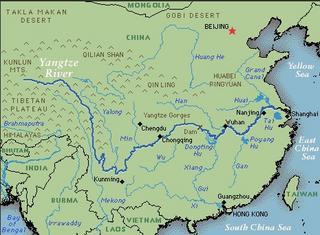John Pomfret has written an in-depth article on the arrest of the health official who blew the whistle on China’s cover-up of the Henan AIDS debacle.
Read between the lines, and the entire tragedy becomes clear:
The AIDS epidemic in Henan was touched off in the early 1990s when provincial health officials began to push a plan encouraging peasants to sell their blood. Dealers bought blood from villagers and pooled it, mixing healthy blood with HIV-infected blood. They extracted plasma, a blood component with medical uses, and re-injected the rest of the blood back into the farmers’ arms. AIDS spread quickly through the poor communities.
Henan’s authorities tried for years to repress all reporting about the disease. Ma’s arrest appears to be connected to the case of Wan Yanhai, a prominent AIDS activist who was detained for a month last summer after he received the document. Officials accused Ma, who prepared the document, of passing it to Wan; Wan said he did not know who e-mailed him the document. After AIDS activists and international organizations condemned Wan’s detention, he was released and allowed to travel to the United States.
Chinese sources described Ma’s arrest as a move by Liu Quanxi, the former director of Henan’s health department and the man widely blamed for presiding over Henan’s AIDS epidemic. Liu has remained a force in Henan politics and has avoided taking any responsibility for the epidemic, the sources said. Liu lobbied strongly for Ma’s arrest, the sources added, as a way to warn anyone who might consider exposing his role in the epidemic there.
According to the classified document, Liu’s department was “caught up in the get-rich craze” of the early 1990s as blood sales skyrocketed. Liu ordered the local medical center to focus on blood collection to earn revenue. He also led a blood-selling delegation to the United States in 1993-94, with the message that “there isn’t any HIV in Henan province and the blood is cheap,” the document said. He now holds a senior post in the province’s legislature.
This fellow Liu sounds like a real role model. He infects thousands of peasants with AIDS, he gets rich selling their blood, he moves up the ranks of the CCP and goes unpunished, he successfully lobbies for the arrest of the good guy….
My guess is that the CCP will have to let Ma Shiwen out of jail, and soon. The uproar that is beginning to well is only going to crescendo, and that could have repercussions for China’s economy. (If anything talks in the PRC, it’s money.) This is one of those human rights stories that isn’t going to just go away. It’s simply too terrible. And it will hurt China in more ways than one:
Ma’s arrest is likely to further hurt China’s efforts to win nearly $100 million in funding from the Global Fund to Fight AIDS, Tuberculosis and Malaria. The fund has rejected two previous applications, partly because of China’s attempts to hide the scale of the epidemic.

Comments